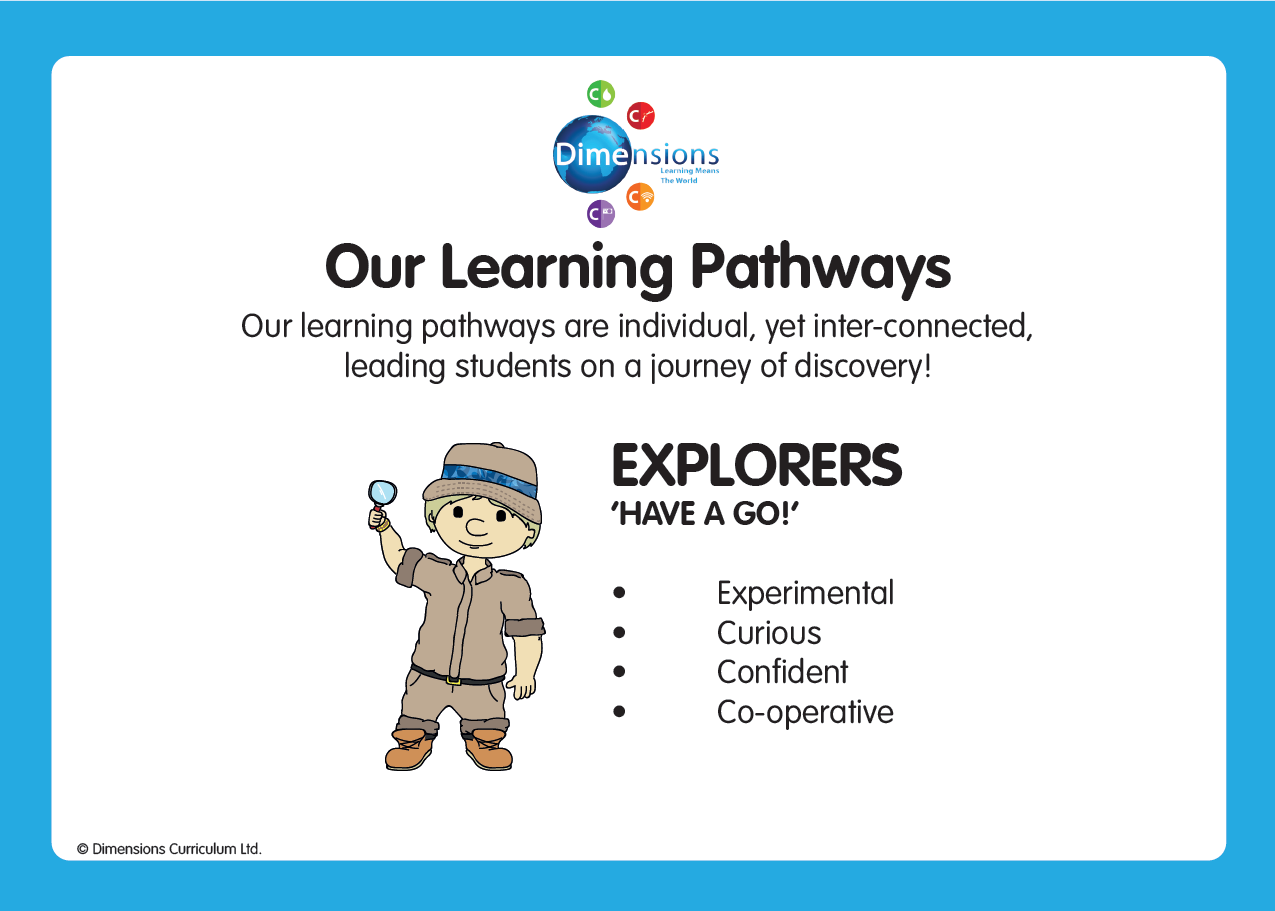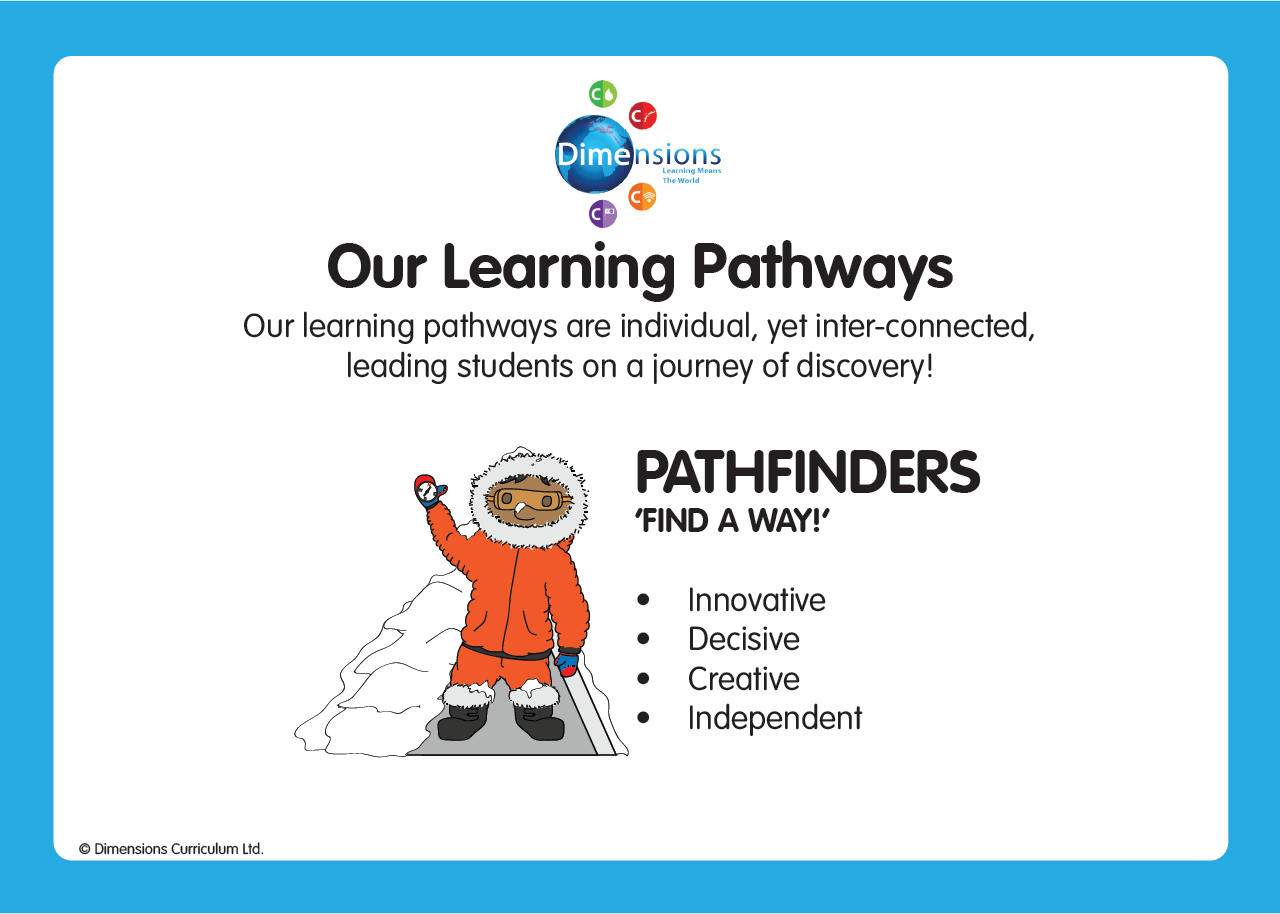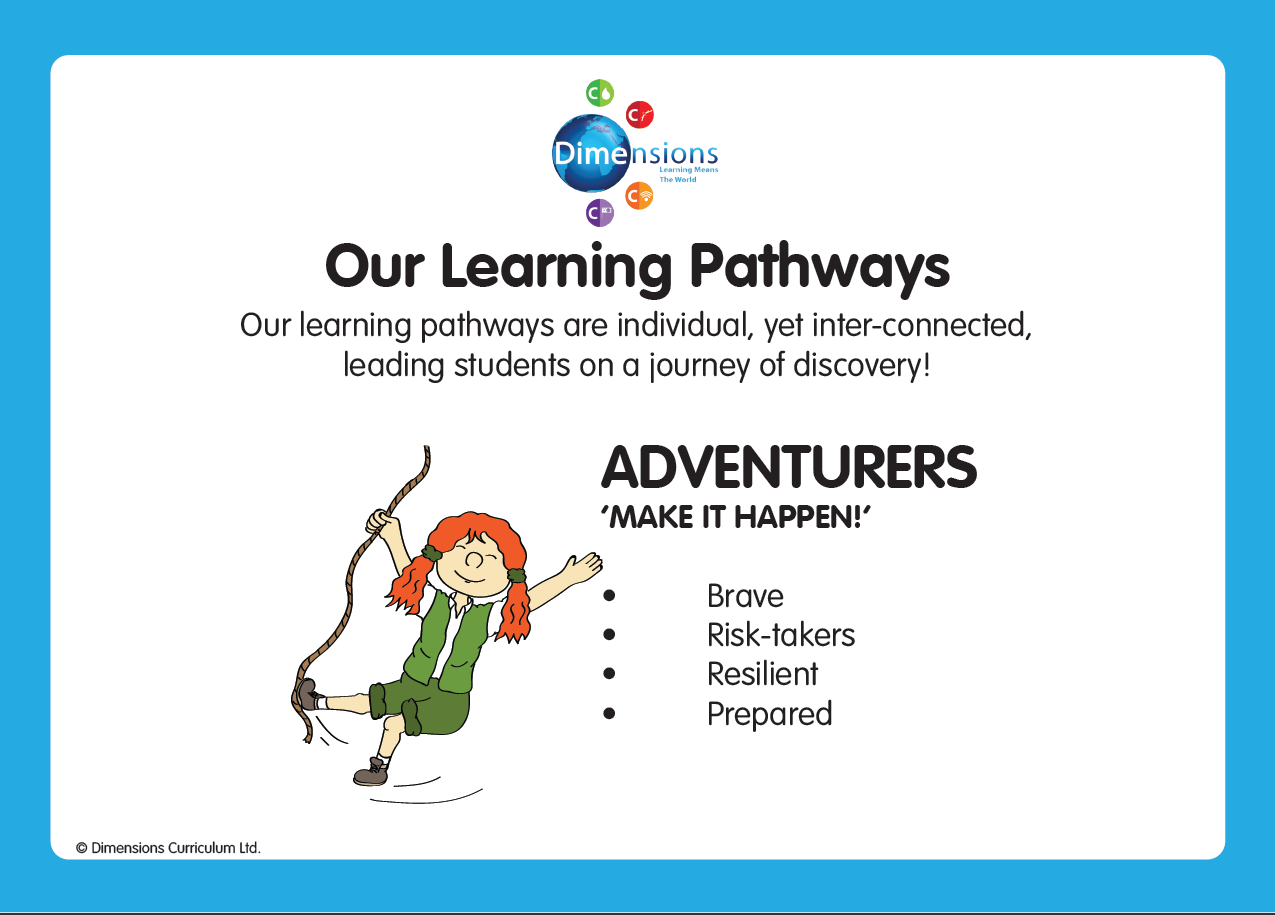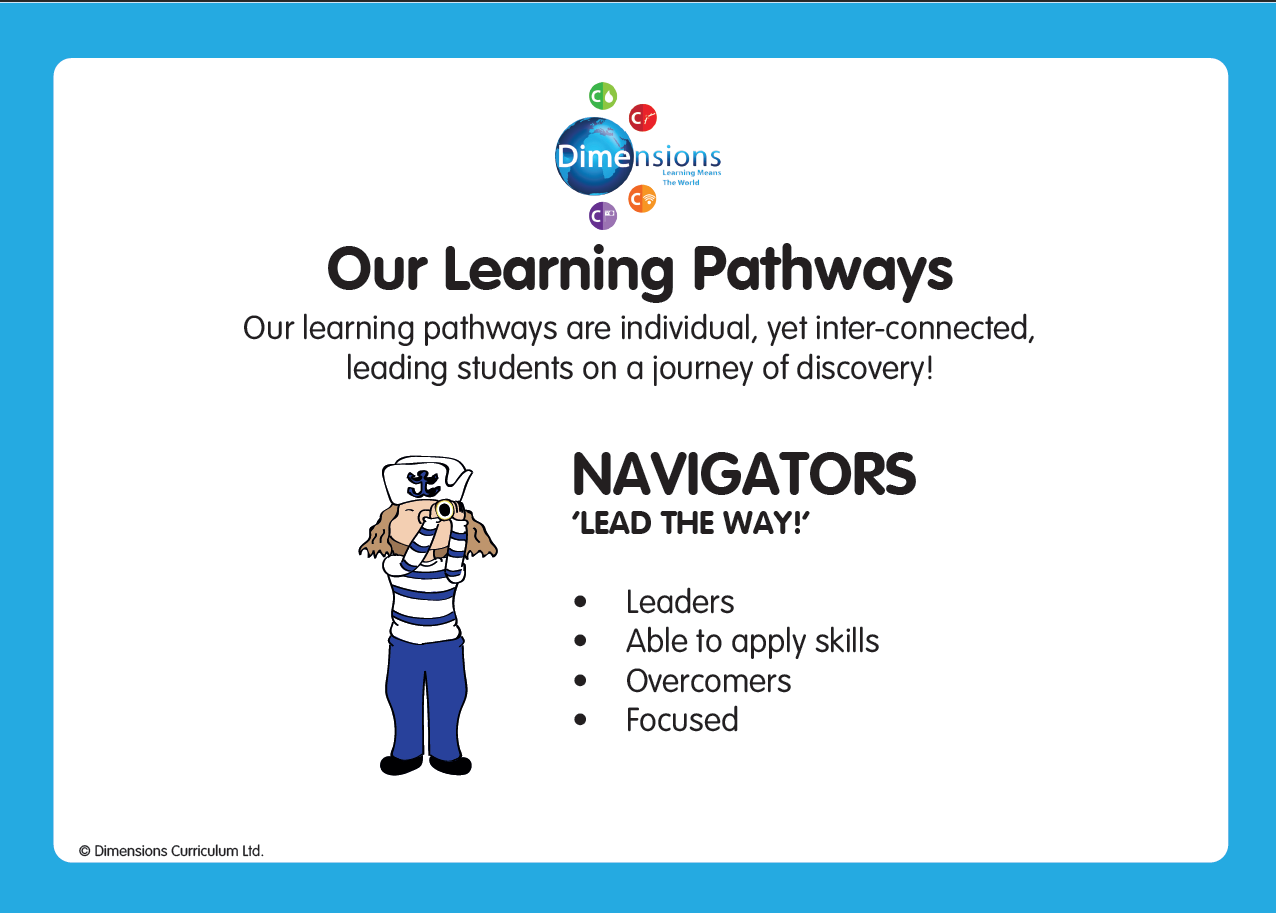Other subjects

Learning Means the World Curriculum
Based on the UNICEF Rights of the Child
Intent
At North Crescent Primary School, we are committed to raising aspirations and helping our pupils take ownership of their learning by providing a cohesive, well-planned curriculum. As such, our subject disciplines are connected in a meaningful way, evidencing clear progression, and with a consistent approach throughout the school.
Because of this, we have designed a spiral curriculum that is relevant and challenging, in order to cater for the specific needs of our pupils and provide them with a wide range of experiential learning opportunities. We want them to become educated and responsible citizens, developing their cultural capital, whilst teaching them all about human creativity and achievement.
Implementation
We especially want our pupils’ learning to be relevant and outward facing. This is why we use the Dimensions ‘Learning Means the World’ Curriculum, which is underpinned by four highly relevant world issues, known as the four Cs: Culture, Conservation, Communication and Conflict.
Communication
We believe that communication underpins, and is the key to, learning. Many of our pupils find it difficult to verbalise so we are committed to helping our pupils to be thoughtful, effective and considerate communicators, who are able to clearly express their needs. They need to develop their speech and language skills in order to help them achieve long-term success. We recognise that more interesting and varied vocabulary is needed to this end. Our curriculum provides lots of opportunities for pupils to develop their language and vocabulary, thus enabling them to articulate their learning, express their thinking and opinions well in discussion, debate and presentation, as well as enabling collaboration and exchange of ideas.
By the end of Navigators Phase, pupils will be able to communicate in ways that build and maintain positive relationships through focused listening, confident speaking, sharing ideas and explaining clearly. They will know how communication has developed through time and the chronology of technology, now our current main means of communicating. They will also learn how to communicate in an assertive way, avoiding conflict through mutual respect.
Culture
To support community and global harmony, as a school we want our children to have personal exposure to, and experience of, other cultures. We want to break down barriers and ensure our pupils fully appreciate and embrace cultural diversity, learning about and experiencing a range of different cultural backgrounds. With a climate of openness and acceptance, we want them to value diversity, challenge racism and stereotypes, understand the roots and importance of cultural heritage and to behave in a respectful and tolerant way towards others, regardless of faith, ethnicity or background. We actively and explicitly promote cross-cultural friendship, respect, tolerance and understanding in this core area of our curriculum.
By the end of Navigators Phase, pupils will be able to define and identify the characteristic features of culture and understand why cultural diversity is important. They will be able to talk about the features of a range of different cultures from around the world, explaining some of their similarities and differences. They will also learn how culture affects perception and influences behaviour.
Conflict
We believe that an understanding of responsible, respectful behaviour is an important aspect of learning. Having a developed understanding of sources of, and reasons for conflict, and the importance of seeing things from others’ points of view, we believe, will make a difference to their own choices as they learn more about conflict resolution. We want our pupils to manage their emotional responses well, taking ownership of, and deal with situations involving conflict independently. We want them to also understand the impact of conflict globally, developing an appreciation of others’ opinions and perspectives. To support our children to achieve this we have introduced a ‘Restorative Justice’ approach to behaviour management.
By the end of Navigators Phase, pupils will be able to define conflict and explain the key reasons as to why conflict exists. They will also be able to give specific examples of conflict, both past and present, on a local, national and global scale. On a personal level, they will learn how to handle disagreements constructively and resolve their differences peaceably.
Conservation
We want to unlock global ambassadors by using conservation as a key in our school vision for the future. By developing a greater level of responsibility towards the environment and teaching our pupils about the need to be leaders in caring for the world by looking after things, we provide them with a structured approach to growing their awareness and appreciation of local, national and global sustainability issues and initiatives. We want to make sustainability central in our curriculum, teaching our pupils to care passionately about our world, and to engage actively in problem-solving.
By the end of Navigators Phase, pupils will be able to define conservation, outline key areas e.g. biodiversity and understand why it is such an important world issue. They will learn how we can live more sustainably, understanding the importance of natural resources and renewable energy. On a personal level, they will learn how they can make a difference by reducing their carbon footprint and behaving in a more environmentally responsible way.
Click the links below to view the Learning Pathways.
Learner Traits
 |
 |
 |
 |
As well as these four core areas, our curriculum also incorporates history-based aspirational Competency Theme Units, which draw inspiration from a range of diverse historical role models like Thomas Barnardo, Josephine Baker and Ada Lovelace, helping to promote courage, commitment, creativity and a sense of community in our pupils.
Progression of Knowledge and Skills
For further information about the 'intent' for each subject or the skills, knowledge and vocabulary taught in each theme, please don't hesitate to ask the class teachers.
